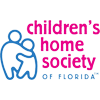Common FAQs concerning Adopting a child in Florida.
Answers to Florida Adoptions FAQs
Question Who can adopt a child?
Answer To be eligible to adopt one of Florida's children, you may be married or single, already a parent or never a parent, in your 60s or in your 20s, an apartment renter or a homeowner, a person of modest means or wealth. The fact is that there is no one description of people who can be prospective adoptive parents. If you have the ability to love a child, to provide the basics for a child and to make a lifelong commitment, you can be an adoptive parent. A few things will prevent you from becoming an adoptive parent, such as certain felony criminal records.
Question Do i have to worry about the biological parent(s) taking my child back?
Answer No. Florida’s children are not made available for adoption until a court has already terminated the parental rights of their birth parents. So you never have to worry about a biological parent challenging your parental rights. This form of adoption is very secure.
Question What is the meaning of "Special Needs"?
Answer Federal rules describe Special Needs for certain kids that are eligible for financial assistance in the adoption process. So special Needs does not necessarily mean that the child has a specific disability. The state of Florida has certain criteria that determine whether a child is considered Special Needs. If the child has one or more of the below criteria, the child will qualify for Special Needs assistance in the state of Florida:
- Eight years of age or older
- African American or racially mixed parentage
- Member of a sibling group being placed for adoption as a unit
- Mentally, Physically and/or emotionally handicapped
- Significant emotional ties with his/her foster parents or relative caregiver
Question Is special needs adoptions the choice for me?
Answer If you are the type of person who is patient, has ample time to give the needs of a special child as well as shower him with the love he needs, then adopting a child with special needs may be for you. Emotional stability is what you need to hurdle many trials you might be facing with the decision to adopt a child with special needs.
Additionally, being financially and physically strong can help you overcome the challenges of being an adoptive parent to a child with special needs.
Question What are the different types of adoptions?
Answer Adoption is the act of legally and permanently assuming custody of a minor who is not your biological child. The different types of adoption include:
- Fost-adopt: The child is placed in the care of trained and skilled foster parents.
- Infant adoption: The child is adopted at birth or during early infancy.
- International adoption: The adoptive parents adopt a child from a foreign country.
- Waiting child adoption: This term refers to adopting a non-infant child, most commonly a toddler.
- Step-child adoption: The child is legally adopted by his or her step-parent.
- Older child adoption: Adoption of a child over two years of age.
- Relative adoption: The child is legally adopted by family members who are not his or her own parents.
- Special needs adoption: This term refers to adopting children who have physical, mental, or emotional abnormalities.
- Military and overseas adoption: A child is adopted by military personnel or overseas workers.
- Adult adoption: An adult is adopted by another adult who is not his or her own parent. In this type of adoption, even senior citizens may be adopted by younger adults.
Question Who Can Be Adopted?
Answer It is important to remember that most foster children are reunited with their parents or are placed with relatives and never become available for adoption. However, foster children whose birth parents' parental rights have been terminated by the courts may be adopted.
While many teens have experienced multiple rejections and are hesitant to try adoption, it is important for them to have a family to assist them through the remaining years of adolescence and to be supportive into their adult years. Family ties do not end at age 18.
Question What types of post adoption services are available in Florida?
Answer Post adoption services in Florida are administered by the Department of Children’s Services, Family Safety and Preservation Program Office. The DCF and contracted agencies provide various services, depending on location. Post-adoption services include the following examples:
- Information and referral
- Support groups
- Adoption related libraries
- Case management
- Training
- Florida Adoption Reunion Registry (FARR)
Question How Long Does It Take To Adopt?
Answer The answer varies. The process to become an approved adoptive parent includes attending a preparation course of ten weeks, obtaining local, state and federal background checks, MAPP/PRIDE training, current physical exam, and completion of a home study. The process can usually be completed in eight months.
When a child is matched with your family, pre-placement activities will occur including visits and regular communications with the child. Placement of the child will occur as soon as the child is comfortable. The child's counselor will supervise the placement for a minimum of 90 days. When the supervision period is completed, the counselor will provide consents to your attorney and a hearing may be scheduled for legalization of the adoption.
Question What is a homestudy?
Answer Homestudies are required by the state of Florida, for all prospective adoptive parents. A homestudy is an in-depth review of the prospective adoptive family. Homestudies as part of the adoption process to ensure that the adoptive parent(s) are physically, emotionally, mentally and financially able to adopt. A homestudy includes the following parts:
- You will be required to provide information about your health.
- Background checks at the local, state and federal level will be conducted, including having your fingerprints screened at the federal level.
- References will be requested from your employer, school officials if you have children in school and character references from individuals who have known you and your family.
- The counselor will visit your home one or more times to complete the home study. If you have children, it will be important for the counselor to ask them a few questions about what they think about adoption. Some of the topics that will be discussed with you and your spouse, if you have one, are:
- Why do you want to adopt?
- Describe your childhood.
- What are the strengths of your marriage?
- How do you think a new child in your home will alter your lifestyle?
- Describe your financial situation.
- Describe your parenting style/philosophy.
Question What is MAPP Training?
Answer MAPP stands for Model Approach to Partnership and Parenting and is a 30-hour training course required to become an adoptive parent in the state of Florida. If you are married, both you and your spouse must attend. MAPP will provide you with information on the special needs of children in our care and equip you with tools to assess your family's strengths and needs to help you decide if adoption is right for your family.
Question Is post-adoption support provided?
Answer Yes. The local community based care agency that assisted you in completing the adoption provides support such as information and referral services, support groups, adoption-related libraries, case management and training. To find out what options are available to you in your area, talk with your adoption counselor, contact your regional office of the Department of Children and Families, or click here to find a listing of Post Adoption Services Counselors in Florida.
Question What does an adoption cost?
Answer When you adopt a child from a community based care agency you will not be charged an adoption fee or fees related to pre-adoptive training, home studies or placement. There may be expenses related to attorney fees and court costs but these may be reimbursed by the state. Other one-time-only expenses that may be reimbursed are birth certificate fees and travel expenses for visiting the child.
Question What are the financial requirements (if any) to adopt a child in care?
Answer The acceptable income level varies widely depending on each unique situation. Income will be addressed as part of the home study to ensure that an adoptive parent is currently financially stable and able to provide for the basic needs of a child. Potential adoptive parents will never be disqualified based on income alone.
Question What financial assistance is available for children adopted from community based care?
Answer The maximum federal adoption tax credit has been raised to $13,170 per child. The credit is refundable, meaning that eligible taxpayers can get it even if they owe no tax for that year. In general, the credit is based on the reasonable and necessary expenses related to a legal adoption. For more information, go to http://www.irs.gov/taxtopics/tc607.html.
Question Will I receive a complete case history when I consider a child for adoption?
Answer Yes. One of the benefits of adopting from the state is having access to a comprehensive case history. You will be given information on the child's medical background, foster placements and developmental level. You will also be given insight into the child's personality, habits, hobbies, aspirations, likes and dislikes. This information helps determine how the child will fit into your family.
Ways to Contribute to OCOC
Make a Donation
Every child deserves a forever, permanent home and family. You can make a difference - a child is waiting for adoption or foster care in Florida.
Partner with OCOC
Our Partnership Program provides opportunities for businesses, organizations and individuals to join with OCOC in lending support to families.
Volunteer with Us
Please consider donating your time and experience with us. Opportunities vary throughout the state but we can use any services you have to offer.









